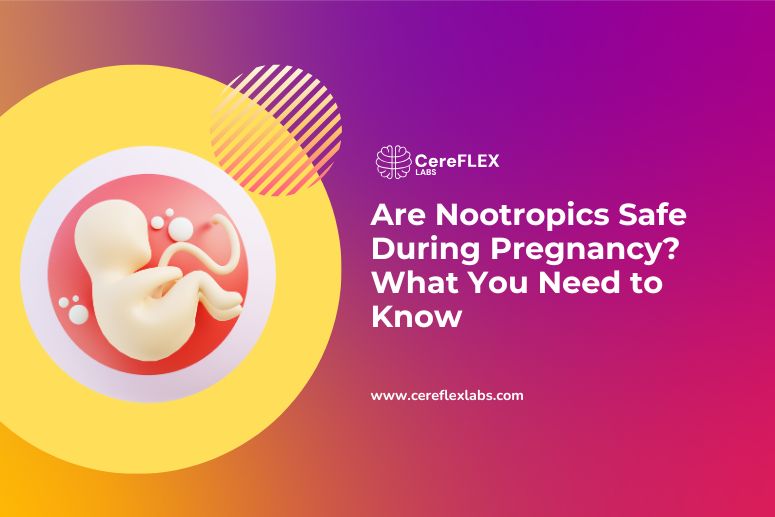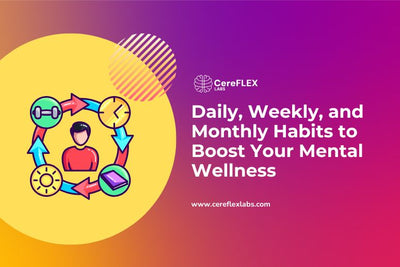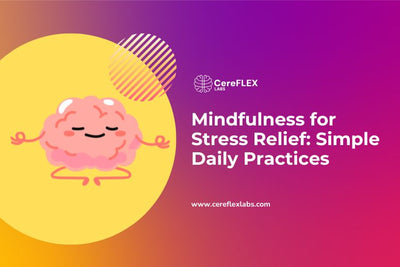Nootropics—whether herbal, mushroom-based, or synthetic like caffeine and L-theanine—are growing in popularity for boosting focus, mood, and mental clarity. But if you’re pregnant, you’re likely asking the most important question: Are nootropics actually safe during this time?
The truth is, research on nootropics and pregnancy is still limited. Some ingredients may support fetal development and cognitive health, while others could pose risks to you or your baby.
To help you navigate what’s safe and what to avoid, we’ve created this science-informed guide to nootropic use during pregnancy—with practical advice and clear examples.
Here is the Quick Answer |
|
Not all nootropics are safe during pregnancy. While nutrients like choline, DHA, and folic acid are supportive of brain and fetal development, others—like adaptogens, synthetics, or high caffeine—can pose risks. Always talk to your doctor before using any brain-boosting supplement while pregnant. When in doubt, choose nutrient-rich food, rest, and professional guidance over experimental stacks. |

Understanding Nootropic Safety in Pregnancy?
Some nootropics may be considered safe during pregnancy—especially those that come from essential nutrients like B-vitamins, choline, and DHA. These are already recommended in many prenatal supplements and support both brain function and fetal development.
However, many other nootropics fall into less clear territory. Ingredients like ashwagandha, Rhodiola, racetams, and high doses of caffeine may carry potential risks. These risks include:
- Disrupting hormone balance
- Overstimulating the nervous system
- Crossing the placenta and possibly affecting the baby’s development
Because the research on nootropic safety during pregnancy is limited, it’s best to approach anything beyond standard prenatal nutrients with caution.

Why Professional Guidance Is Essential
Pregnancy is one of the most sensitive and dynamic stages of life. During this time, the body’s metabolism, hormone levels, and nutrient needs all change—sometimes drastically. That’s why professional guidance is critical before taking any supplement, including nootropics.
Even ingredients that seem harmless—like herbal teas or natural adaptogens—can pose risks during pregnancy. They might interact with prescription medications, amplify certain nutrients already included in prenatal vitamins, or affect hormone levels in ways that aren't obvious.
An OBGYN, midwife, or prenatal nutritionist can help you evaluate whether a specific nootropic is safe for your unique situation. They’ll look at factors like:
- Your current supplements and medications
- Pre-existing health conditions or pregnancy-related risks
- Safe dosage thresholds based on current research
- The timing of use across different pregnancy trimesters
This kind of tailored medical insight is especially important because some nootropics may cross the placenta or influence the baby’s development—even if they’re natural or widely used.
Bottom line: When it comes to pregnancy and supplements, what’s “generally safe” isn’t always safe for you. Involving a healthcare provider is your best line of defense.
Nootropics that May Benefit You During Your Pregnancy Months
While caution is key during pregnancy, a few nootropic nutrients may actually help support brain function, fetal development, and maternal well-being.
These ingredients are either widely accepted in prenatal health or have emerging research behind them. Here are some of the most promising candidates:

Folic Acid (Vitamin B9)
Folic acid is one of the most critical nutrients during pregnancy. It helps prevent serious birth defects of the brain and spine, such as spina bifida and anencephaly. It also contributes to healthy cell division and DNA synthesis.
Additional benefits of folic acid during pregnancy include:
- Lower risk of preeclampsia
- Reduced chances of miscarriage and preterm delivery
- Support for maternal heart and brain health later in life
This is why folic acid is a staple in prenatal vitamins and is considered a brain-protective nootropic for both mother and baby.
B Vitamins
The B-vitamin complex supports a wide range of functions during pregnancy. Each plays a unique role in maintaining maternal energy and supporting fetal brain development.
- Vitamin B1 (Thiamine) and B6 (Pyridoxine): Help regulate mood, reduce nausea, and support neural development
- B2 (Riboflavin) and B3 (Niacin): Aid in nutrient metabolism and improve circulation
- B5 (Pantothenic Acid): Supports hormone production and reduces muscle cramping
- B7 (Biotin): Commonly depleted in pregnancy, important for hair, skin, and nerve health
- B12 (Cobalamin): Essential for DNA synthesis and works with folic acid to prevent neural tube defects
In short, B vitamins are foundational for both cognitive and physical well-being throughout pregnancy.
Choline
Choline is often overlooked, but it's one of the most important brain-building nutrients during pregnancy. It plays a key role in:
- Fetal brain development and memory formation
- The formation of neurotransmitters and cell membranes
- Reducing the risk of neural and metabolic disorders
Many prenatal supplements still lack enough choline, so it’s worth reviewing your current intake with a healthcare provider to ensure you’re getting adequate amounts.
Curcumin
Curcumin, the active compound in turmeric, may offer anti-inflammatory benefits that could support pregnancy—particularly in reducing the risk of complications like preeclampsia.
Early research shows that curcumin may help:
- Regulate oxidative stress and inflammation
- Lower the risk of gestational hypertension
- Support overall immune function during pregnancy
However, high doses of curcumin supplements are not advised. If you're considering turmeric or curcumin, consult your provider to determine what’s safe for you.
DHA (Docosahexaenoic Acid)
DHA is an omega-3 fatty acid that plays a vital role in fetal brain and eye development. It is especially important during the third trimester, when neural growth accelerates.
Benefits of DHA in pregnancy include:
- Improved fetal memory and learning capacity
- Healthy development of the cerebral cortex
- Reduced risk of early preterm birth
- Potential protection against postpartum mood issues
Because the baby receives DHA directly from the mother, it’s essential to maintain adequate intake through diet or a high-quality prenatal supplement.

Ingredients to Avoid While Pregnant
Not all nootropics are safe for pregnancy. Even ingredients marketed as “natural” or “well-tolerated” may carry risks to the mother or developing fetus. Below are some of the most important compounds to avoid—or approach only with professional guidance.
Caffeine (Especially in High Doses)
Caffeine is one of the most common nootropic ingredients, but large amounts can raise safety concerns during pregnancy.
While moderate caffeine intake (up to 300 mg per day)1 is generally considered safe, exceeding this limit has been linked to:
- Increased risk of miscarriage or low birth weight
- Elevated heart rate and anxiety in both mother and fetus
- Sleep disruption or restlessness
It’s best to stick to one cup of coffee or tea per day, and monitor total caffeine intake from all sources, including supplements and energy drinks.
Adaptogens Like Rhodiola and Ashwagandha
These herbs are often used in nootropic formulas to help manage stress—but during pregnancy, they may interfere with hormonal balance and uterine function.
For example, Ashwagandha may stimulate uterine contractions or lower blood pressure or Rhodiola can influence stress hormones and cardiovascular function
Because safety data during pregnancy is scarce and inconsistent, adaptogens should be avoided unless specifically recommended by your healthcare provider.
Racetams and Other Synthetic Nootropics
Compounds like Piracetam and Aniracetam are popular synthetic nootropics for improving memory and focus. However, their effects during pregnancy are unknown, and they have not been evaluated for fetal safety.
These substances:
- Cross the blood-brain barrier
- May alter neurotransmitter levels
- Could potentially pass through the placenta
In the absence of long-term safety data, it’s best to avoid these entirely while pregnant.
Herbal Ingredients with Limited Research
Some plant-based nootropics—such as Bacopa monnieri, Ginkgo biloba, and lion’s mane mushroom—may show promise for cognitive support, but their effects on pregnancy have not been thoroughly studied.
Risks include hormonal disruption, possible interference with fetal development, and potential for cross-placental transfer
If a supplement label includes herbs that haven’t been clearly deemed safe for pregnancy, it’s better to skip it or consult your doctor first.
Conclusion
Nootropics offer exciting potential for boosting mental clarity—but pregnancy isn’t the time to experiment.
While nutrients like choline, DHA, and B-vitamins support both maternal and fetal brain development, many other nootropics, including adaptogens, synthetic compounds, and poorly studied herbs, carry unknown or avoidable risks.
That’s why it’s essential to:
- Stick with pregnancy-safe nutrients backed by clinical research
- Avoid supplements with uncertain safety profiles
- Get professional guidance before starting or continuing any nootropic
Your body processes everything differently during pregnancy, and your baby’s developing brain is highly sensitive to even small changes in your internal environment.
At Cereflex Labs, we prioritize transparency, clinical integrity, and safety. Our AM/PM protocol is formulated with high-quality, evidence-backed ingredients—but if you're pregnant or breastfeeding, we strongly advise speaking with your healthcare provider before adding any supplement to your routine.
Sometimes, the smartest cognitive enhancer is rest, whole food, and a slower pace.






